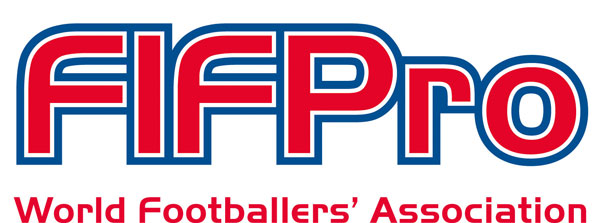By Paul Nicholson
March 28 – FIFPro, the World Footballers’ Association has strongly backed UEFA’s president Michel Platini callingfor a worldwide ban on Third Party Ownership (TPO) of players.
“There is no place for TPO,” said FIFPro Secretary-General Theo van Seggelen. “Not only are the rights of the players we represent under attack, but TPO is causing serious damage to football’s global integrity.”
“This is but one issue linked to the failings of the transfer system, which cripples the game’s economic structure and encourages abusive practices such as TPO.”
In a very strongly word message in his speech at the UEFA Congress in Astana, Kazhakstan, Platini said that if FIFA didn’t act, UEFA would.
“If FIFA fails to act, we will address this issue in our own competitions in Europe. The UEFA Executive Committee has already adopted a position on this issue in principle, and we will see this through. I do not want to be complicit in these practices, and at the moment I have the nasty feeling that I am,” said Platini.
TPO is where there is an agreement between a club and a third party (businesses and/or investing individuals) in exchange for owning a percentage of the ‘economic rights’, of the future transfer (value) of the player.
TPO is widely used in South America, Spain and Portugal and has been growing as a financial tool in Eastern Europe. It is currently banned in England, France and Poland.
“TPO is pitched as a necessary evil by shrewd business people who’ve found a way to expose the industry’s weaknesses through the insufficient regulations of a fundamentally flawed transfer system.” said Van Seggelen.
“FIFA has a duty, on a global scale, to ensure there is no room for TPO to survive in any way shape or form.”
In a statement FIFPro listed the reasons for its opposition to TPO:
· Third parties generate power to interfere with the contractual rights of the parties. Without a transfer and thereby termination of the contract, there is no financial incentive.
· It interferes with the players’ freedom of movement as a) he will be pressured to transfer b) his destination is further triggered by third parties’ financial interests.
· The concept of a third parties’ ownership or property interest in a person is unacceptable and lends itself to the conclusion of being a form of modern-day slavery.
· The ownership of multiple players by outside parties without, or with an improper sporting interest creates an integrity threat
· Third Party Ownership draws significant amounts of money out of the football industry. A recent KPMG report showcased that there is only one guaranteed winner in these deals – the third party investor, while significant money is lost and clubs are drawn into a financial dependence. It is an abuse of our industry.
· It is a response to the growing competitive imbalance and the acceleration of budget growth required to compete internationally, as well as nationally. In that sense it regarded as a “quick fix” of the symptoms instead of reconsidering the structural deficits.
Contact the writer of this story at moc.l1745222118labto1745222118ofdlr1745222118owedi1745222118sni@n1745222118osloh1745222118cin.l1745222118uap1745222118

